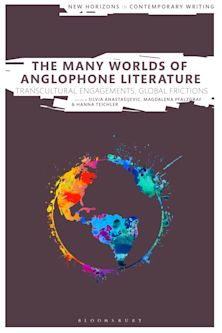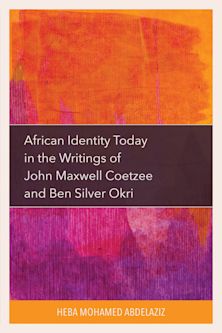- Home
- ACADEMIC
- Literary Studies
- African Literature
- Visions of Womanhood in Contemporary African Literature
Visions of Womanhood in Contemporary African Literature
Visions of Womanhood in Contemporary African Literature
You must sign in to add this item to your wishlist. Please sign in or create an account
Description
Through an analysis of historical and contemporary literature, Visions of Womanhood in Contemporary African Literature argues that African women were not relegated to the background in African society until after colonization. Blessing Diala-Ogamba analyzes the history of women’s roles in African society through oral stories and biographies to show how colonialization worked to oppress women in Africa and explores the ways contemporary African literature confronts and works to overcome its colonial past. Using works by authors such as Akachi Adimora Ezeigbo, Lilian Masitera, Nawal El Sadaawi, Lauretta Ncgobo, Sembene Ousmane, and many others, Diala-Ogamba reveals the consistent progression of women and their roles in African novels and society.
Table of Contents
Section 1: Women's Identity and Self-Awareness
Chapter 1: Oral Traditions in African Novels: An Analysis of Akachi Adimora Ezeigbo's The Last of the Strong Ones and Sunny Udoh's Martial Bliss
Chapter 2: Technique and Form in Lilian Masitera's The Trail
Chapter 3: Social Change and Women's Struggle in Zukiswa Wanner's The Madam
Section 2: Patriarchal Abuse and Liberation
Chapter 4: Hypocrisy and Abuse of Power in Nawal El Sadaawi's God Dies By The Nile and The Fall of The Imam
Chapter 5: From Oppression to Rebelliousness: Women in Tayeb Salih's Season of Migration to North and Buchi Emecheta's Kehinde
Section 3: Exploitation, Women's Struggle, and Resistance
Chapter 6: Race, Colonialism, and Resistance: The Women Left Behind in Lauretta Ncgobo's and They Didn't Die
Chapter 7: The Formidable Emancipator in Meja Mwangi's Crossroads: The Last Plague
Chapter 8: Behind the Veil: The Unyielding Protagonist in Nuruddin Farah's Knots
Section 4: Gender and Liberation in Patriarchal Society
C
Product details
| Published | Sep 28 2021 |
|---|---|
| Format | Ebook (Epub & Mobi) |
| Edition | 1st |
| Extent | 186 |
| ISBN | 9781793644398 |
| Imprint | Lexington Books |
| Publisher | Bloomsbury Publishing |
About the contributors
Reviews
-
An innovative and compelling interpretation of the growing representation of women in literary texts and movies produced by African female and male genders. Refreshingly authentic and theoretically well-grounded, Visions of Womanhood embodies the accentuation of the African woman from patriarchal victimhood to female agency, individuality, vibrancy, assertiveness, and self-worth through education, socialization, consciousness-raising, and diligence. This expansive and invaluable contribution to the growing trends in African literature, gender studies, and film studies is highly recommended.
Gloria Chuku, University of Maryland, Baltimore County
-
Blessing Diala-Ogamba’s Visions of Womanhood in Contemporary African Literature is a consequential study of African women writers and their stirring portraits of female identity on the continent. The book examines specific creative works and films in which these writers seek to resist and confront perennial forms of colonial and patriarchal repressions of women. Visions of Womanhood in Contemporary African Literature is essential reading for readers with interests in African literature and gender studies.
Charles Tita, University of North Carolina-Pembroke
-
Visions of Womanhood in Contemporary African Literature is an insightful study that reveals the portraiture of women’s struggle and progress. The women portrayed in the literary texts and films used here, move away from the state of marginalization and voicelessness to a state of socio-political and economic independence through their awareness, bonding, and intellectual activism. The book will benefit scholars in gender and multicultural studies.
Romanus O. Muoneke, St. Thomas University

ONLINE RESOURCES
Bloomsbury Collections
This book is available on Bloomsbury Collections where your library has access.



































